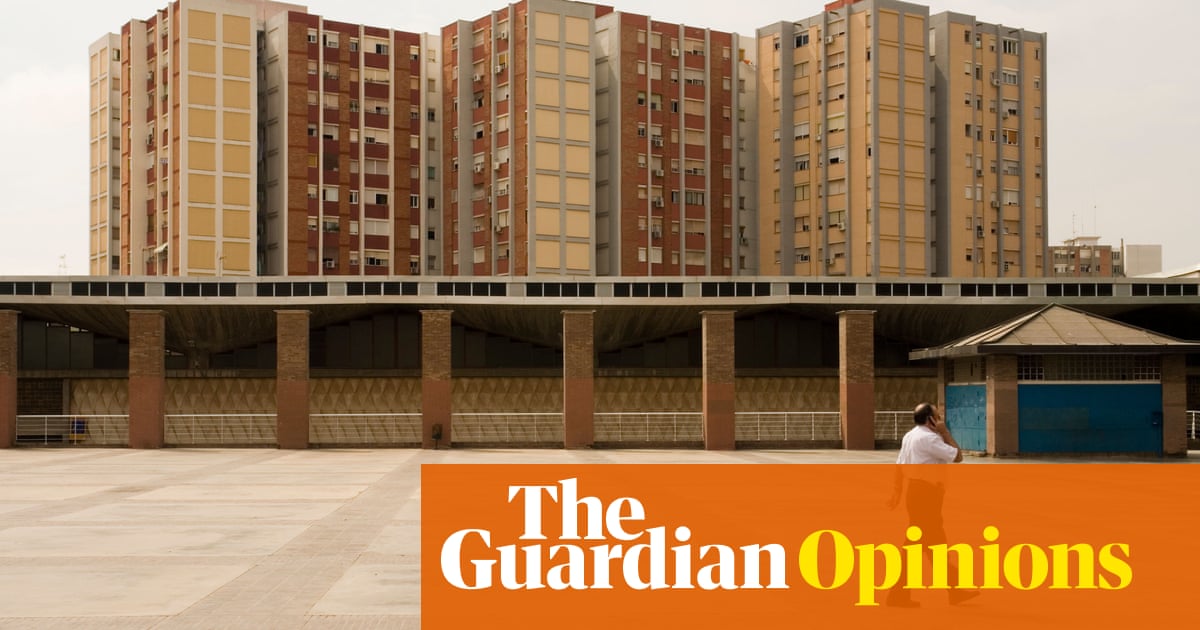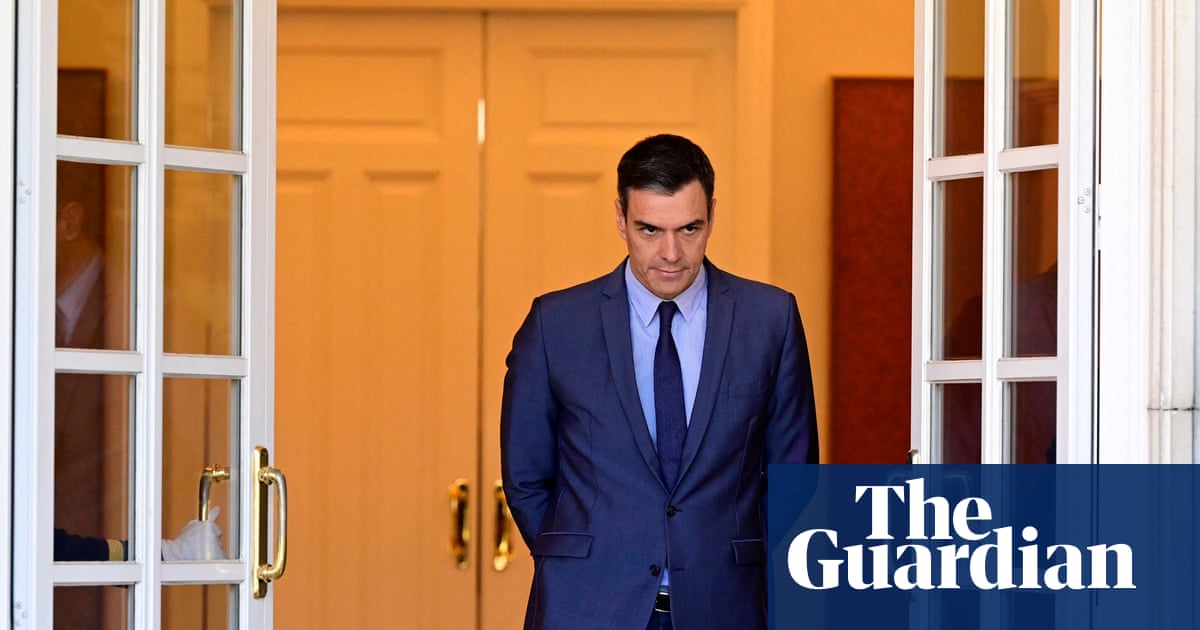
Ahousing revolution is taking place in Spain. On 26 May, a monumental new housing law came into force. It was the culmination of years of work and sought to enshrine housing as a human right. But now that vision is in danger. Two days after the law passed, rightwing parties won seats in local and regional elections. Last week Spain’s prime minister, Pedro Sánchez, called a snap election. On 23 July, when Spain goes to the polls, the fate of this law will hang in the balance.
The origins of the law go back decades. In 1956, José Luis de Arrese, who would become Franco’s first housing minister, said that Spain had to change from “a country of working-class tenants to a country of homeowners”. Governments encouraged property ownership at the expense of renting. It created a new class of social housing – “publicly protected housing”. Unlike your average council home, a publicly protected home is subsidised by the government and offered for sale at an affordable price. Once 30 years have elapsed, it can be sold on the free market.
This model has made Spain one of the largest property-owning countries in the west, with almost 80% of housing owner-occupied. While Spain built 6.5m publicly protected homes, only 400,000 now remain.
The cracks in this model appeared in 2008. As the real estate crisis swept across the world, a wave of evictions unfolded in Spain. Many people who had lost their homes started to rent. Demand leaped up in the country’s small and under-regulated private letting sector. Rents increased by 51.4%, while wages rose only 3.4% over the decade that followed. As a result, Spain now has the highest housing cost overburden rate in Europe, the number of people for whom total housing costs represent more than 40% of income. The evictions crisis planted the seed for Spain’s housing movement, led by anti-eviction campaigners and tenants’ unions.
It was in Barcelona that the housing revolution was born. Ada Colau, a tenants organiser, was elected mayor in 2015. Since then, the city has changed the paradigm of its housing policy. Instead of standing back and letting the market take the lead, the state has intervened to shape the housing market so everyone has access to adequate, sustainable and affordable housing. In Barcelona, the stock of council housing has doubled and the vast majority of evictions have ceased.
Meanwhile, the city government has tried to stop the advance of gentrification by acquiring empty private buildings and regulating Airbnb apartments. It even passed a rent control law that reduced rents by 6% without reducing the housing supply. But it was declared by the courts to be unconstitutional on grounds of jurisdiction. It was partially from this legal defeat that the Spanish housing law emerged.
If enacted, the new law would represent a paradigm shift. It would prevent the privatisation of council housing, and set a target of creating 20% more social housing over the next 20 years. It would increase protections for vulnerable tenants, and tax landlords who hold on to empty homes. It includes new tax incentives for landlords who reduce prices or offer long-term lets. Most significantly, it would introduce provisions for national rent control, which Barcelona has pledged to adopt. The law isn’t perfect: it includes loopholes for people who own tourist or seasonal housing, and regional governments can opt out of some provisions.
Even so, it is a radical shift that would guarantee the right to housing, developing the housing system as a pillar of the welfare state. But a question mark hangs over its fate. As the supporters of rightwing parties congregated in public squares after the 28 May elections, the future of Barcelona’s government looked increasingly uncertain. If a rightwing party takes control of the municipality, its housing achievements could be reversed. Revolution aborted? We’ll only know once the election results are in.
Eduardo González de Molina is a policy adviser at Barcelona city council and an affiliate academic at the UCL Institute for Innovation and Public Purpose












